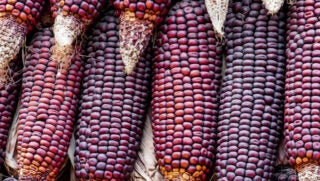For students who want to pursue a highly specialized course of study or who simply don’t want to pursue a long-term degree path, graduate certificates are a important option to consider. Many universities offer graduate certificate programs in agriculture, which may be the perfect fit for someone eager to enter into the ag industry or build upon their current knowledge base.
A graduate certificate can be awarded in as little as two semesters and costs less than a degree. Certificates often teach specific skills or hone topics within larger fields — as opposed to degrees, which are more broadly focused. In agriculture, certificates cover such topics as seed business management, sustainable farming, or biosecurity.
Here are some of the most interesting graduate certificate programs in agriculture, along with all the information you need to go after them.

Colorado State University
Program: The Graduate Certificate in Applied Global Stability: Agriculture
Curriculum: Classes include Issues in Global Environmental Stability; Advanced Issues in Agriculture; and Understanding and Managing Animal Resources.
- Credits required: 12
- Tuition: $605/credit
- Background: This graduate certificate concentrates on topics including sustainable agriculture, urban horticulture, animal agriculture, food systems, and bioenergy. The coursework is designed for individuals working in the field for organizations focused on improving people’s lives through the development of sustainable environmental practices.
- You can find more information here on the school’s website.
Program: Graduate Certificate in Agritourism Management
Curriculum: Classes include Overview and Trends of Agritourism Management, Lodging Management, Spatial and Community Dimensions of Agritourism, Culinary Tourism, Agritourism Enterprise Management, and Financial Management in Tourism.
- Credits required: 12
- Tuition: $489/credit hour with fee included
- Background: This graduate certificate addresses a need for graduate-level education in a growing tourism sector as farmers increasingly use agritourism operations as a means to diversify and generate revenues for their agricultural business ventures. The aim of this graduate certificate is to provide students with a sound understanding of the agritourism industry and the knowledge to successfully support a range of agritourism activities.
- You can find more information here on the school’s website.
University of Illinois
Program: The Graduate Certificate in Professional Development in Crop Sciences
Curriculum: Classes include Crop Production to Plant Breeding, Insect Pest Management, Plant Physiology, Herbicide Mode of Action, and Crop Growth and Development..
- Credits required: 8
- Tuition: $686/credit
- Background: The Department of Crop Sciences has a 30-year history of providing University of Illinois courses to agricultural professionals across Illinois, and throughout the Midwest. Students who successfully complete three qualifying online courses are eligible to receive the certificate.
- You can find more information here on the school’s website.
Program: The Graduate Certificate in Professional Development in Horticulture
Curriculum: Specializations include Plants and People, Sustainable Production, and Horticultural Science.
- Credits required: 12
- Tuition: $686/credit
- Background: This certificate is aligned with the Online M.S. program in the Department of Crop Sciences. The online course offerings enable students to strengthen their education through part-time study anywhere in the world. It is geared toward high school students, undergraduates, graduates, master gardeners, naturalists, and anyone interested in furthering their knowledge of fruits, vegetables, medicinal plants, and crops.
- You can find more information here on the school’s website.
Iowa State University
Program: Seed Business Management Graduate Certificate
Curriculum: Classes include Introduction to the Seed Industry; Strategy and Planning; and Seed Trade Policies and Regulation.
- Credits required: 16
- Tuition: $751/credit hour
- Background: The objective of this certificate is to provide students with core graduate level management and leadership skills that will enable them to better serve seed and agricultural biotechnology businesses and regulatory agencies, their customers and their stakeholders, in an increasingly complex environment. In addition to mastery of the business analytical procedures, the students will learn how seed value is created and delivered in market economies, and how government regulation impacts the delivery of value to customers, the appropriate scope of effective regulation, and various ethical approaches to regulation
- You can find more information here on the school’s website.
Program: Agronomy Graduate Certificate
Curriculum: Classes include Crop Growth and Development; Chemistry, Physics, and Biology of Soils; and Integrated Pest Management.
- Credits required: 18
- Tuition: $497/credit hour
- Background: The objective of this certificate program is to help students understand the scientific principles underlying crop management and physiology, plant improvement, climatology, soil management and fertility, and integrated pest management. The courses also include improved understanding of group dynamics and facilitate the accomplishment of individual and collective goals.
- You can find more information here on the school’s website.
Penn State University
Program: Agricultural Biosecurity and Food Defense Graduate Certificate
Curriculum: Classes include Veterinary Infectious Disease Diagnostic and Surveillance Systems; Plant Protection: Responding to Introductions of Threatening Pest and Pathogens; and Agricultural Biosecurity: Protecting a Key Infrastructure.
- Credits required: 12 (typically takes just over a year to complete)
- Tuition: $853/credit hour
- Background: Designed for working professionals with or without experience in the agricultural and food security industry, this certificate is open to candidates who hold a bachelor’s degree. The program is ideal for public health professionals, food safety analysts, quality control specialists, plant managers, food safety engineers, food defense coordinators, and food inspectors. The course work can be completed in just over a year and demonstrates a deep commitment to understanding of the vulnerabilities and protection of our food system.
- You can find more information here on the school’s website.
Sam Houston State University
Program: Graduate Certificate in Sustainable Agriculture
Curriculum: Class topics include ag sales, agritourism, entrepreneurship, and soil ecology.
- Credits required: 12
- Tuition: $489/credit hour with fee included
- Background: This program will build competencies in the most current aspects of the agricultural industry, including agricultural advocacy, alternative agricultural enterprises, entrepreneurial activities, agritourism, conservation, and innovative marketing strategies. The program is ideal for small landowners, urban farmers, value-added and cottage food makers, educators, or government agents seeking knowledge, professional development, or continuing-education credit.
- You can find more information here on the school’s website.
Tufts University
Program: Sustainable Agriculture and Food Systems Graduate Certificate
Curriculum: Classes include Sustainability on the Farm; Sustainable Food Systems & Markets; and Sustainability and the Food Consumer.
- Credits required: 9
- Tuition: $847/credit
- Background: This program is ideal for professionals engaged in a variety of food-related businesses and organizations, as well as others interested in implementing sustainable practices for their organizations, partners, and communities. It is critical to understand the broad impacts of the food system in order to create effective policy and market solutions.
- You can find more information here on the school’s website.
Of course, more important than simply finding a great program is finding a program that is a great fit for your needs and learning style. There are many more programs out there beyond these, and it’s worth looking into all options in your chosen field.
To find a broad list of four-year college programs, check out this Agricultural College Guide.
Please note: The data presented on this page was found on the individual school’s websites. The information, particularly tuition costs, is subject to change at the schools’ discretion.







